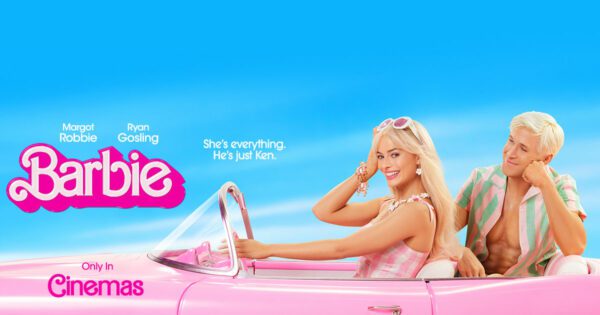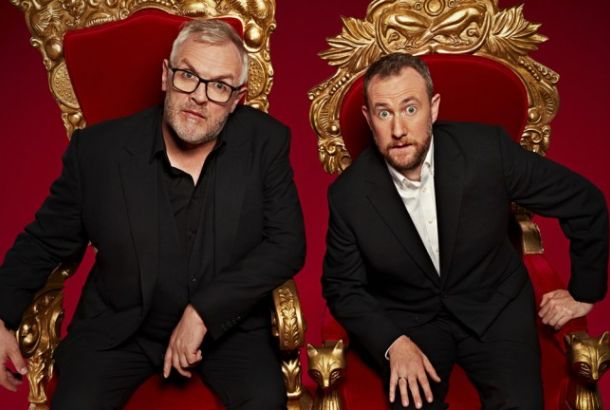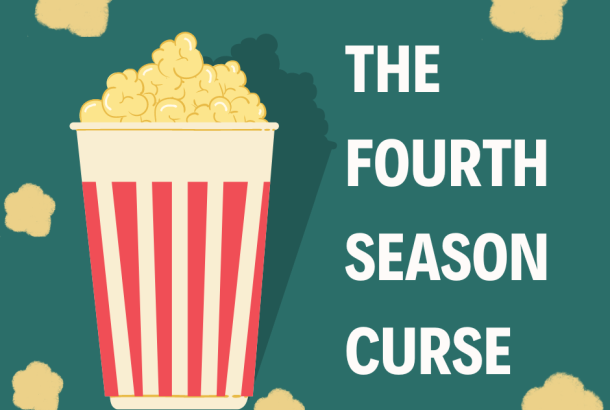Opinion: Any self-respecting feminist shouldn’t be rooting for Barbie

February is a big month for Letterboxd incels like me. Awards season is upon us, a rollercoaster six-week celebration of the year gone by’s shining contributions to film, music and television. As 2023’s major motion pictures race towards Oscar glory, a certain pastel hopeful is already out in the cold – Greta Gerwig’s Barbie.
Where to begin with Barbie? The bubblegum blockbuster has managed to nick four major nominations: Supporting Actor, Supporting Actress, Adapted Screenplay and Best Picture. None of these are…particularly deserved. The original Barbie animations were Better Pictures, America Ferrera was fine, and although Ryan Gosling’s Ken was relatively funny, could we even call it acting? Plus a screenplay nod for a ‘feminist’ film with Noah Baumbach as a co-writer may well be a signifier of the end times. We might not even make it to the Oscars. I kind of hope that we don’t.
Online, the Academy was blasted for snubbing Barbie in two categories: Best Actress for Margot Robbie and Best Director for Greta Gerwig. These snubs were paraded as explicit indicators of Hollywood’s resounding misogyny. I saw one tweet that stuck Margot Robbie’s face alongside lyrics from Taylor Swift’s ‘The Man’, seemingly lamenting about the limited opportunities for women in the Best Actress category.
Online, it seems no one cares that Lily Gladstone may become the first Native-American woman to win an Oscar. Or that the true anti-woman snub was Celine Song missing out on a Best Director nomination for Past Lives. Even amongst the nominations, Justine Triet’s Anatomy of a Fall presents more valid feminist notions in a singular frame than Barbie does in its entire runtime.
So many female-led films were cut out of the Oscars, full stop. So many amazing strides for effective representation have been made within these very categories. But the discourse dominating online spaces is essentially a collective temper tantrum because the billion-dollar, white woman film didn’t get enough nominations. But- but….Ryan Gosling got a nomination and Margot Robbie didn’t! Guys, this is JUST like the plot of the mov-.
This is a prime example of how Barbie’s nominations and the ‘snub’ buzz that has surrounded them are symptomatic of a cultural hysteria that I’m dubbing ‘Barbie Rabies’. The name refers to the mental decomposition of the sentient brain after consuming Barbie discourse. It starts by chipping away your intricate, nuanced understanding of the layers and intersections of womanhood, and then it blitzes your brain into a liberal feminism smoothie.
And no, I’m not being dramatic. In the blissful, pre-Barbie year of 2022, I really thought that we were getting somewhere. A decade of relentless online discourse seemed to have genuinely radicalised the masses of my generation; girlboss choice feminism was finally rejected and women were waking up. We were thinking critically about the way that feminism was presented to us in film; typically in a white, beautiful and not too radical package. We were demanding better, and for a minute, amongst incredible directors like Charlotte Wells, Rebecca Hall and Lulu Wang, it seemed like we might get it.
Then Mattel made a film about a literal doll, and everyone lost their minds. Any notion of demanding more than another white liberal feminist film went out the window because of… doll movie? Ryan Gosling? Dua Lipa?
Barbie’s attempt at commentary consisted of insultingly reductive feminist notions, but the online reaction was to herald the film as a cultural groundbreaker and a legitimisation of girlhood. I don’t know about you, but my experience of girlhood isn’t something that can be epitomised by a $145 million Warner Bros. blockbuster.

To justify Barbie’s failings, a great lie has spread like wildfire online. Fear not, feminist malcontents, Barbie was metaphorically basic because it needed to be accessible; and easy to digest for all ages and audiences. You shouldn’t ask for anything beyond the lukewarm, awkwardly-meta half-commentary that Gerwig lazily offers up, because then you would be an elitist cinephile and part of the problem.
Barbie thinks that you are stupid. Like, really stupid. It’s telling you that its spineless messaging is all that your smooth little brain can process, and you should be happy that you’re getting any commentary at all. It regresses every concept of patriarchy and sexism into the barest of bones of understanding, then it boils those bones and skims all the nuance off the top like excess fat, before pouring the resultant cavewoman thought-goo into uniform Mattel moulds, producing little white feminism gummies for us all to chew on. Then it dares to imply that it’s doing that for your own sake. Don’t fall for it.
Maisy, you might say, “Didn’t you just write an article criticising Emerald Fennel? Sounds like you just hate female directors.” You would be half right! This is mostly attributed to my belief that Hollywood periodically picks rich, white women with nothing new to say about feminism to pump out a bi-annual ‘Woman-Film’ and insist that the industry is progressive. So no, I don’t love the four or five (if that) female directors that Hollywood keeps trying to convince me are feminist auteurs; they’re not and we should want new ones.
Women deserve better than the repetitive, soft-on-patriarchy sludge that they’re served under the guise of mainstream female-made cinema. Over-exaggerating the importance of the Barbie film does feminism no favours. We’re getting complacent with what we expect of our filmmakers, and insisting that we’re progressive whilst we do it.
So, in defence of Jo Koy (god help me), Barbie is a movie about a doll. And crucially to the Academy, it’s not a very well-made one. The script makes up for its own shallowness with cringe half-meta jokes about Margot Robbie’s unrealistic body standards. America Ferrera’s monologue is the supposed pinnacle of the script, and it’s not only uninspired but reductive, with her reflections on womanhood dismissing intersectionality for the myth of the singular feminine experience. The POC and LGBTQ+ characters are basically props. And beyond this deeply flawed attempt at progressiveness and constant glamorisation of capitalism, the script dares to not even be funny.
But why would we see any genuine criticism? This was a film promoted by Mattel to fill seats, sell dolls and pedal faux empowerment in the process. It’s a product about another product that insists upon itself as the epitome of womanhood. Margot Robbie didn’t become Barbie because she cares about the experiences of young women; she became Barbie because she got paid an estimated $50 million to do it. Margot Robbie and Greta Gerwig made this film for money; they are not your feminist idols.
Barbie failed in most avenues. As a film for children, it was passable. But stripped-down messaging and convoluted storytelling make it hard to justify as a film, let alone a good one. We don’t need more awards for Barbie, we need a new wave of feminism. Like, right now. Because if this film is the most important piece of feminist media that modern women can identify with, then something is seriously wrong.







